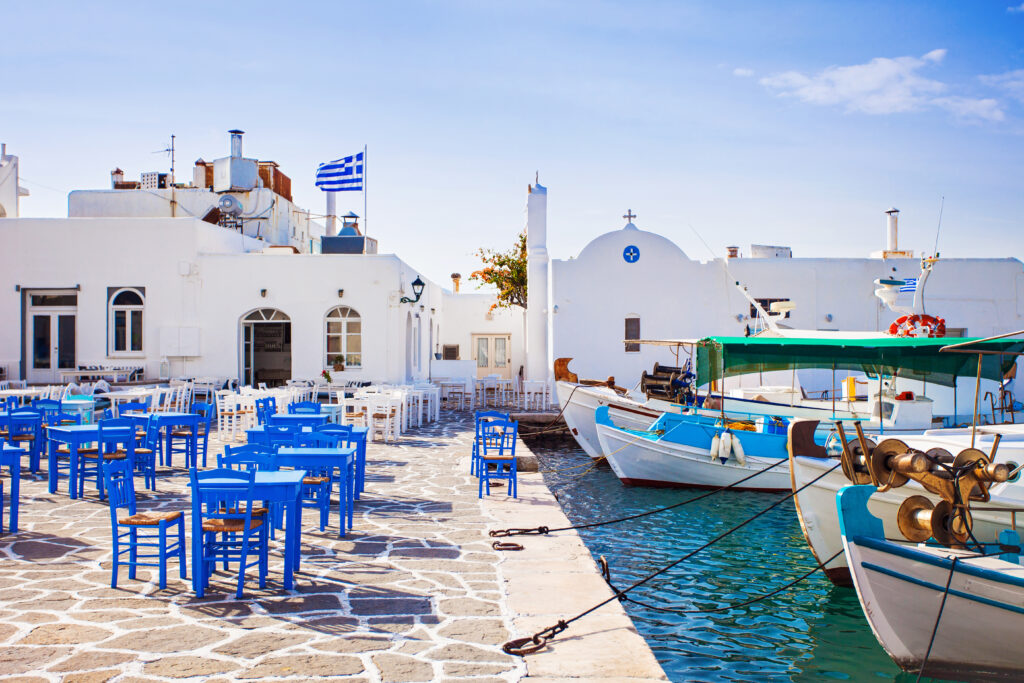Greece is one of the world’s most captivating destinations, offering a perfect combination of natural beauty, ancient history, and vibrant culture. Many potential visitors often ask, is Greece expensive to visit? While images of Santorini’s whitewashed villages or Mykonos’ chic beach clubs might suggest a pricey vacation, the reality is more nuanced. Greece provides a wide range of experiences that allow travelers to enjoy quality, comfort, and charm without feeling like their budget is being overstretched. From well-appointed hotels and guesthouses to unforgettable dining experiences, the country manages to balance luxury with accessibility.
Flights to Greece: Getting There
Reaching Greece is simpler than many imagine. Direct flights from major U.S. cities such as New York, Atlanta, or Chicago usually cost between $700 and $1,300 in economy class. Connecting through European hubs like London, Paris, or Frankfurt can provide additional flexibility, with the possibility of lower fares and multiple daily flight options. For those seeking more comfort, many airlines offer premium seating with added amenities, including more spacious seating, priority boarding, and in-flight meals. Traveling during shoulder seasons, such as May–June or September–October, can also help reduce costs while still enjoying pleasant weather and fewer crowds.
Even though flights represent a significant portion of the budget, the wide variety of airlines, routes, and travel classes ensures that visitors can find options that align with both comfort and value. Early planning, comparison tools, and flexible travel dates can further improve pricing, making the journey to Greece manageable for most travelers.
Accommodation: Comfort Meets Character
Greece offers a remarkable range of accommodations that combine style, comfort, and local charm. In Athens, hotels in central areas like Plaka and Monastiraki range from €150 to €250 per night and provide easy access to historic sites, restaurants, and shopping. For those looking to stay on the islands, Santorini offers accommodations with iconic caldera views, private terraces, or plunge pools, typically ranging from €250 to €600 per night. Mykonos follows a similar range, with chic hotels and boutique stays available between €300 and €650.
Smaller islands such as Naxos, Paros, and Crete offer a more balanced pricing structure, with charming boutique hotels and well-appointed guesthouses for €180–€350 per night. Many of these properties feature traditional Greek architecture, sea views, and personalized service, allowing visitors to enjoy the authentic atmosphere without overspending. Greece’s accommodation scene ensures that whether travelers are seeking contemporary comfort or traditional charm, they can find a place that feels both special and attainable.
Dining: Exceptional Meals at Every Price
Greek cuisine is renowned for its freshness, flavor, and simplicity. From bustling tavernas to high-end restaurants, there is something for every palate and budget. A meal at a local taverna, featuring dishes like grilled fish, moussaka, and meze plates, often costs €15–€30 per person. Upscale dining experiences with fine views, particularly on Santorini or Mykonos, may cost €40–€80 per person, but the quality and ambiance justify the price.
Even everyday meals are memorable, with local ingredients like olive oil, fresh seafood, and seasonal vegetables highlighting the country’s culinary heritage. Street food and casual dining offer another way to enjoy Greek flavors affordably, with gyros, souvlaki, and pastries often costing less than €10. Dining in Greece is an experience that combines taste, culture, and value, providing travelers with memorable meals without feeling overpriced.

Transportation: Getting Around
Traveling to and within Greece is straightforward, and transportation costs are reasonable. Domestic flights from Athens to popular islands such as Crete, Santorini, or Mykonos generally cost €60–€120 if booked in advance. Ferries are another popular option for island-hopping, offering high-speed vessels for shorter trips or conventional ferries for a more leisurely journey. Conventional ferries are usually more affordable and allow travelers to experience the Aegean Sea at a relaxed pace.
Car rentals are available throughout Greece, particularly on larger islands and the mainland, offering flexibility for those who want to explore independently. Rates for well-maintained vehicles are often between €30–€60 per day, depending on the season and car type. Buses, taxis, and shuttle services provide practical and affordable alternatives for shorter distances or city travel. Overall, Greece’s transportation options allow travelers to explore comfortably without excessive expenses.
Experiences and Sightseeing: Value Beyond Price
Greece is a country rich in history, culture, and natural beauty, and many of its experiences are highly accessible. Entrance fees for major sites, such as the Acropolis in Athens, Delphi, or the theaters of Epidaurus, typically range from €10–€25. Guided tours, private excursions, and curated experiences enhance the visit and provide deeper insight into Greece’s heritage.
The islands offer a wide range of experiences as well. Santorini’s volcanic beaches, Oia’s famous sunsets, and Crete’s rugged mountains provide natural wonders that can be explored with minimal cost beyond transportation. Visiting monasteries in Meteora or hiking scenic trails across the islands is often free or comes with a modest fee. By balancing paid and self-guided experiences, travelers can enjoy Greece’s historical, cultural, and natural attractions while keeping overall costs reasonable.
Seasonal Considerations: When to Visit
Timing a trip to Greece can impact cost and overall experience. Peak season, from June to August, attracts large numbers of visitors, resulting in higher prices for flights, accommodations, and tours. Traveling during the shoulder seasons, such as May–June or September–October, allows visitors to enjoy mild weather, fewer crowds, and more accessible rates. Even during peak months, early booking can secure accommodations and flights at fair prices.
Winter travel is also possible, particularly for exploring Athens, Thessaloniki, or northern Greece. Although some islands may have limited services in winter, costs are often significantly lower, and visitors can enjoy a quieter experience without sacrificing quality. Seasonal flexibility in Greece allows travelers to find a balance between affordability and comfort.
Comparing Costs Across Popular Destinations
| Destination | Accommodation (€ per night) | Dining (€ per person) | Transport (€) | Experiences (€) | Overall Value |
|---|---|---|---|---|---|
| Athens | 150–250 | 20–50 | 5–40 | 10–25 | ⭐⭐⭐⭐ |
| Santorini | 250–600 | 40–80 | 10–60 | 15–40 | ⭐⭐⭐⭐⭐ |
| Mykonos | 300–650 | 40–90 | 10–60 | 15–40 | ⭐⭐⭐⭐ |
| Crete | 180–350 | 25–50 | 5–40 | 10–30 | ⭐⭐⭐⭐ |
| Corfu | 150–300 | 20–45 | 5–40 | 10–30 | ⭐⭐⭐⭐ |
| Naxos | 180–300 | 20–40 | 5–35 | 10–25 | ⭐⭐⭐⭐ |
This table demonstrates that Greece provides excellent value for both comfort and memorable experiences. Even destinations with higher-end accommodations maintain pricing that aligns with the quality of the experience. Travelers can enjoy a remarkable mix of history, culture, natural beauty, and gastronomy without feeling financially overstretched.
Conclusion: Is Greece Expensive to Visit?
Greece combines beauty, history, and culture with accessible pricing for accommodations, dining, transportation, and experiences, which makes many travelers wonder, is Greece expensive to visit? The country’s diverse offerings allow visitors to enjoy comfort, scenic surroundings, and unforgettable memories without paying exorbitant fees. From the islands’ pristine beaches and volcanic landscapes to Athens’ historic streets and ancient sites, every aspect of Greece provides value that reflects its unique charm.
A well-planned trip to Greece demonstrates that the answer to is Greece expensive to visit is often no, allowing visitors to balance comfort and cost while ensuring an enriching experience. Whether exploring the dramatic cliffs of Santorini, wandering through Crete’s villages, or visiting historical landmarks in Athens, Greece proves that exceptional experiences don’t always require excessive spending. Every traveler can enjoy the country’s cultural, historical, and natural wonders while staying within a reasonable budget.


